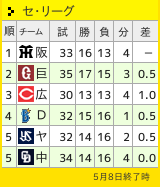One of my acquaintance once introduced his professor's caution, if memory serves me, "you can do the greatest work that use highly mathematical theory only until your mid 30s." In other words, the earlier you study math the better you can acquire and apply it. In my opinion, there are two reasons for this. First, math doesn't need any experiences to master it. It is a tool that enables you to think logically and systematically by yourself. That's why there are some geniuses for math. Second, doing math consumes lots of energy in particular when acquiring it. It needs fresh brain. Although I am not good at math at all compared with other students in my university, I believe that my choice was right that I went to engineering department even though my interest was more on social sciences.
Although there are many exceptions, most undergraduate students in economics department in Japan have no interests on the economics but they just want to enjoy "university life" or get how to make money, to say the least of it, only to find there is no point in studying economics for the purpose. As Mr. Komuro pointed out in Chap.13 of his book "keizaigaku wo meguru kyosho tachi" (the giants in economics, 2004), this would the product of the education by rote because of the entrance examination ordeal for university; In Japan, few high school teachers put importance to let the student explore the wonder of science and stimulate the intellectual curosity of students.
Philosophy and religion, in contrast, need a lifelong investigation. They need your own experiences in order to appreciate the values of various thoughts by previous philosophers. Again in my opinion, the essence of philosophy had already shown by Friedrich W. Nietzsche (1844 - 1900). That is, there is never a sole value that is true and you have to reinvent your sense of value again and again in your life on the basis of the experiences. The idea was introduced metaphorically as "superman" by Nietzsche in his book, Thus Spoke Zarathustra (1883–1885).
Let me take some examples. Jeffrey Sachs, American economist famous for his book The End of Poverty, insists that human being was succeeded in abolish slavery and thus it is also possible to remove poverty altogether by our lifetime. Also, sustainability issues such as climate change and biodiversity are other symbolic problems to be overcome in that only very recently had they became one of the most important global issues as the scientific analyses revealed their disastrous consequences. I think this is exactly the way human being renew its sense of value to "higher" level and it seems an everlasting effort since achieving one goal may take couple of generations and another goal will show up one after another.
I remembered another useful statement by Katsuhiro Nishinari (1967 - ). He is a well known mathematical physicist in Japan for his Jutaigaku, the application of his theories into the real traffic congestions and other similar phenomena. In a magazine, he said that you should not read any textbook before you construct your own ideas by pondering again and again, if you want to establish a whole new academic field. This is because you will be forced to think within the framework of the textbook, however famous it may be, and lose originality of your own ideas.
I think these are exactly the reasons why there are so many economists in Japan and yet so few have achieved great works internationally. I mean that most mainstream economists in Japan seems so less critical on existing framework and result in just following-up discussions in western countries.
In conclusion, I suggest that you should start studying economics a bit later. Not too early to formulate your own hypothetical ideas about the systems of human society but not too late to acquire and apply mathematical analyses. And I feel I am studying economics in right period in my life even if it seems never going to achieve great work in economics.


